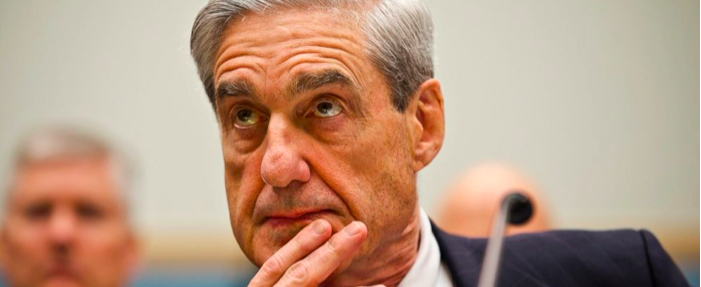
The Russia Investigation: Informing the American Public
December 16, 2017Archives . Authors . Blog News . Certified Review . Feature . Feature Img . Recent Stories . Student Blogs ArticleNow that more than a year has passed since the 2016 presidential election and the reports of Russian interference, we should evaluate the progress and status of the Russia investigation to ensure that the goals of the investigation are being met. Currently, the investigative efforts are splintered across the House, Senate, and Department of Justice and, as we will see, each actor has a different purpose and goal.
Perhaps the highest profile portion of the investigation, and the one many view as showing the most potential to produce quantifiable results, is the effort led by former FBI Director Robert Mueller. However, it is important to consider the limitations of Mueller’s position as special counsel.
Historically, many of the high profile investigations involving the executive branch (Iran Contra, Whitewater, and Monica Lewinsky) were led by special prosecutors (also referred to as independent counsel), a role very different from that of special counsel. After the Watergate scandal, Congress passed the Ethics in Government Act in 1978, which created the special prosecutor. The special prosecutor would be appointed (at the request of the attorney general) by a three judge panel and would have the ability to pursue the investigation and prosecute any charges independent of oversight by the executive branch. However, that act was ultimately scrapped in 1999, partially due to the fact that both parties have had bad experiences with members of their party being investigated under the statute. While there have been calls for Congress to pass another version of the act, it is unlikely that would happen in a Republican controlled Congress.
Thus, ultimately Mueller was appointed as special counsel under the DOJ’s existing structure for investigations. Consequently, Mueller answers to the Deputy Attorney General Rod Rosenstein, since Attorney General Jeff Sessions recused himself. While Mueller is not subject to day-to-day supervision and Rosenstein has said that he will allow Mueller leeway in conducting the investigation, there are still problems with Mueller having to answer to Rosenstein. First and foremost is the fact that Rosenstein is a potential witness in the investigation. While Mueller’s investigation has the potential to produce criminal convictions, there is uncertainty surrounding the ultimate outcome. However, it is not clear that any of the conclusions of the investigation would be released to the public.
However, in addition to Mueller’s investigation there are also multiple Congressional investigations. Historically, Congressional investigations can obtain important information and inform the public even when there was no criminal wrongdoing, but currently, the congressional investigations are being handicapped by secrecy and insufficient staffing. Additionally, the Senate Intelligence Committee, which some consider to be most likely to produce a bipartisan report, has been focused on sanctions and changes to counter-intelligence policy in response to any Russian interference. That has led some Congressional leaders to call for an independent commission similar to the one created after 9/11, which was created after the joint House-Senate committee was unable to provide satisfactory answers to the families of the victims. Such a commission could be staffed with staff and experts given subpoena powers, which could address some of the problems facing the current Congressional investigations. Additionally, such a commission could provide a way for Congress to give the American people a full report of what exactly happened.
Though Mueller’s investigation has made progress, its job is not to inform the American public. Additionally, the Congressional hearings have not been as open and informative as previous investigations. Thus, if one of the goals of the investigation is truly to inform the American public, then Congress should consider an independent committee, with adequate staff and budget, tasked with the goal of creating a report detailing what exactly happened.
Suggested citation: Ryan Parker, The Russia Investigation: Informing the American Public, Cornell J.L. & Pub. Pol’y, The Issue Spotter, (Dec. 16, 2017), https://live-journal-of-law-and-public-policy.pantheonsite.io/the-russia-investigation-informing-the-american-public/.
You may also like
- October 2024
- April 2024
- March 2024
- February 2024
- November 2023
- October 2023
- April 2023
- March 2023
- February 2023
- January 2023
- December 2022
- November 2022
- October 2022
- May 2022
- April 2022
- March 2022
- February 2022
- January 2022
- December 2021
- November 2021
- October 2021
- May 2021
- April 2021
- March 2021
- February 2021
- January 2021
- November 2020
- October 2020
- September 2020
- August 2020
- July 2020
- June 2020
- May 2020
- April 2020
- March 2020
- February 2020
- January 2020
- November 2019
- October 2019
- September 2019
- April 2019
- February 2019
- December 2018
- November 2018
- October 2018
- September 2018
- March 2018
- February 2018
- January 2018
- December 2017
- November 2017
- October 2017
- September 2017
- May 2017
- April 2017
- March 2017
- February 2017
- December 2016
- November 2016
- October 2016
- April 2016
- March 2016
- February 2016
- January 2016
- December 2015
- November 2015
- October 2015
- June 2015
- May 2015
- April 2015
- March 2015
- February 2015
- January 2015
- December 2014
- November 2014
- October 2014
- August 2014
- March 2014
- February 2014
- January 2014
- December 2013
- November 2013
- October 2013
- September 2013
- May 2013
- April 2013
- March 2013
- February 2013
- January 2013
- December 2012
- November 2012
- October 2012
- September 2012
- June 2012
- April 2012
- March 2012
- February 2012
- January 2012
- December 2011
- November 2011
- October 2011
- September 2011
- August 2011
- April 2011
- March 2011
- November 2010
- October 2010
- September 2010